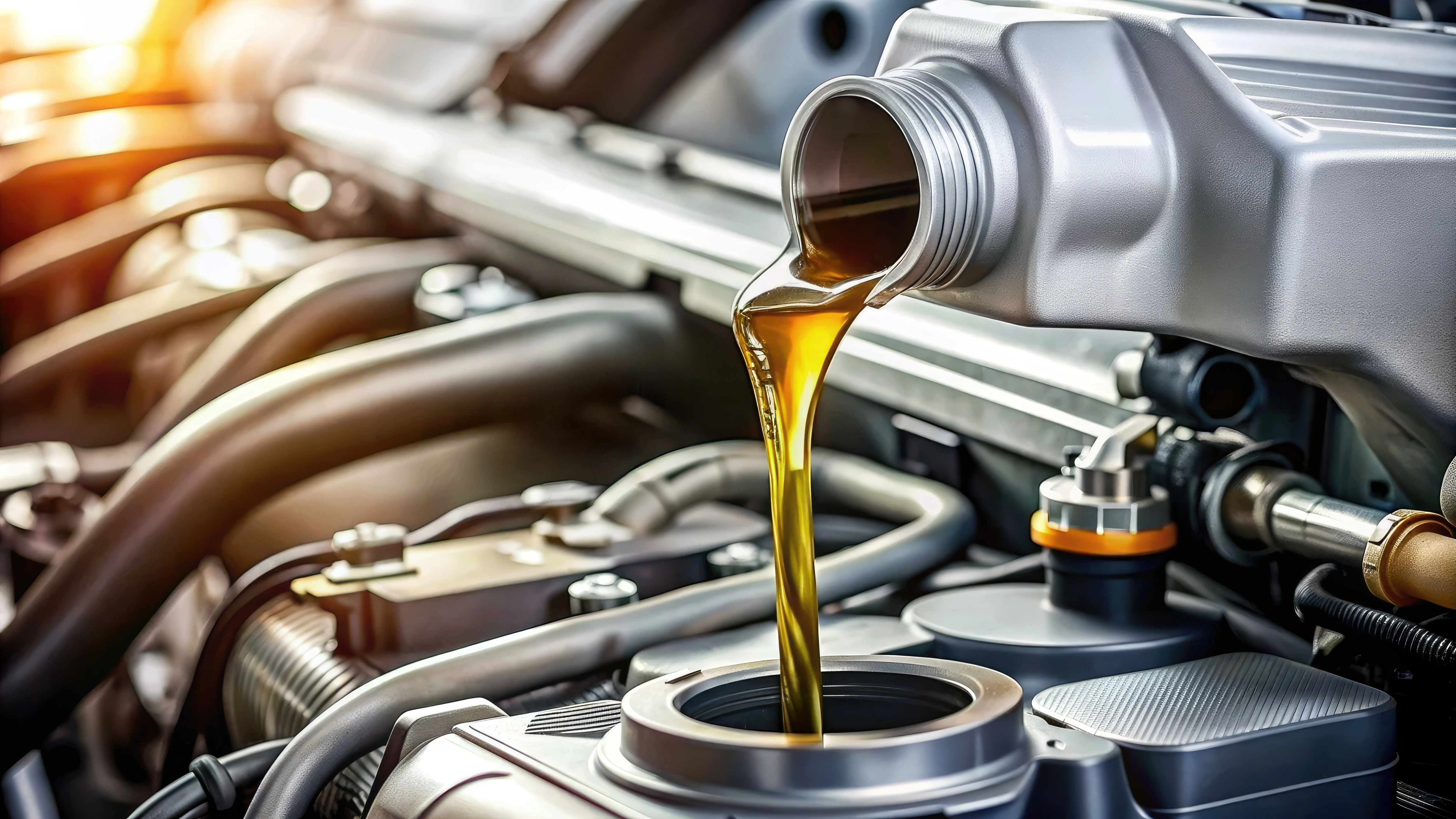Engine Oil vs Transmission Fluid: Key Differences
08 Jul 2024

Is transmission fluid the same as engine oil?
Is transmission fluid the same as engine oil? It’s a common misconception that the two are interchangeable. In fact, engine oil and transmission fluid serve two very different purposes. Substituting one for the other can seriously damage your car, so it’s important to know the difference.
In this article, we’ll go over the differences between transmission fluid and engine oil, what can happen if you mix them up, and how to make sure both are topped up appropriately.
The differences between transmission fluid and engine oil
Function
Engine oil: Engine oil is an essential vehicle fluid that lubricates and protects various engine components, reducing friction and cooling the engine.
Transmission fluid: Unlike engine oil, transmission fluid is a specialised fluid that helps your gears change smoothly while also protecting the gears and clutch from friction.
Appearance
Engine oil: Engine oils are typically translucent amber in colour, like runny honey. Older engine oil tends to have a darker colour.
Transmission fluid: Automatic transmission fluid is deep red, while manual transmission fluid tends to be natural oil colour (a golden yellow). Transmission fluid is ‘thinner’ or more viscous than engine oil because it needs to move freely to transfer power quickly.
Application
Engine oil: Engine oil is used to keep your engine running smoothly and needs to be routinely checked, topped up, and changed as per your manufacturer’s recommendations.
Transmission fluid: Transmission fluid generally has a longer lifespan and does not always require changing – some automatic transmission fluids are known as ‘lifetime fluids’. However, both manual and automatic transmission fluid should be checked and changed as per the manufacturer’s recommendations.
What happens when you mix up engine oil and transmission fluid
Engine oil and transmission fluid are two very different things and mixing up the two can lead to serious consequences. You might:
- Cause damage to the transmission due to incorrect lubrication or friction modifiers
- Experience transmission failure. Signs of transmission failure include difficulty changing gears smoothly or slipping in and out of gear, sometimes causing the engine to rev up without the car gaining speed. Strange grinding or whining noises coming from the transmission area are also signs. Eventually, the transmission may completely fail to shift into any gear, leaving you unable to move the vehicle.
- Wear out your engine rapidly with inadequate lubrication and cooling
- Significantly reduce the performance and efficiency of your engine
Engine oil vs transmission fluid: Maintenance recommendations
Both engine oil and transmission fluid are vital for the ongoing performance of your vehicle, so it’s important to know the difference and adhere to the right maintenance schedule for each one. Specific recommendations relating to your vehicle can be found in your owner’s manual, but general guidelines can be found below.
Engine oil
You should check your engine oil levels on a regular basis, and before any long journeys. This ensures you don’t miss any unexpected leaks which can cause serious damage to your vehicle. If your engine oil levels decline gradually, you can also top up the reservoir as needed.
In addition, your engine oil needs to be changed once every 12 months - however this could be much sooner depending on your driving habits and mileage, so it’s best to consult your driver’s manual. This is a more complicated process that usually requires a mechanic.
Transmission fluid
Whether or not you need to check your transmission fluid depends on the vehicle, so check your owner’s manual for instructions. Some modern cars have a sealed transmission system that does not require checking.
If you are able to check your transmission fluid, you should do so annually. Topping up is a similar process to topping up your engine oil – just make sure you locate the correct dipstick for transmission fluid, and not engine oil. However, as the transmission fluid reservoir isn’t always readily accessible, this is best left to a qualified mechanic.
Low transmission levels could signal a leak; this may be the case if you notice issues with your gearbox, a burning or sweet odour, strange noises or shaking and jerking motions.
Conclusion
Transmission fluid and engine oil are two very different, although both essential, fluids for your vehicle. Knowing the difference can go a long way in preventing damage to your vehicle and saving you the hassle of costly repairs.
By the same token, maintaining both engine oil and transmission fluid at the appropriate level can prevent problems from occurring and even improve the performance and longevity of your car.
Stay on top of the simple maintenance schedule outlined above, and you could save yourself a lot of money and stress in the long run.

